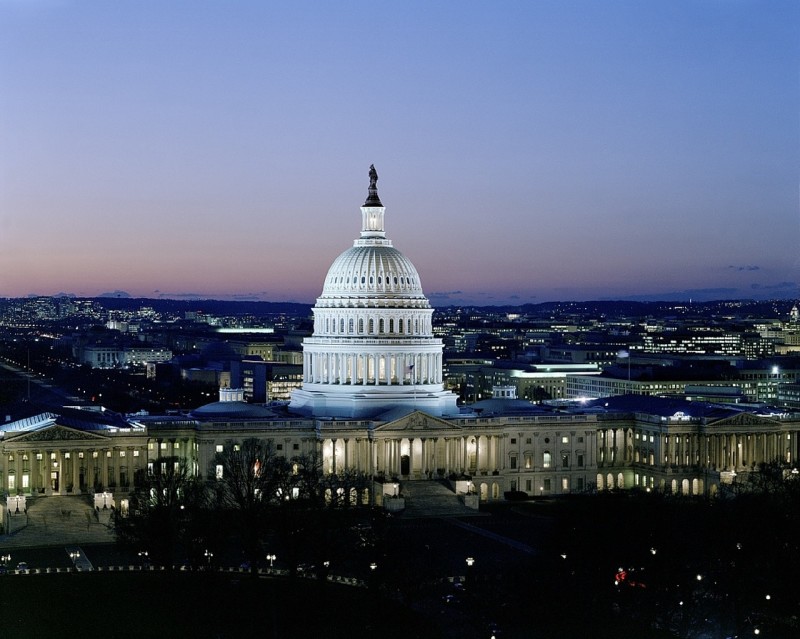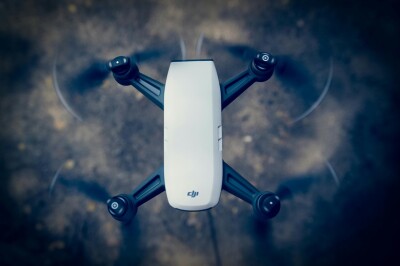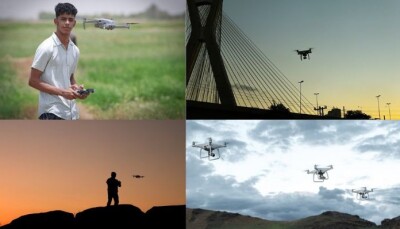In the wake of the mid-June vote by the US House of Representatives to approve the National Defense Authorization Act (NDAA), many commercial drone industry leaders have been speaking out about the legislation, and news outlets have detailed the ways that government officials, business advocacy groups, and others are preparing for what could be a dramatically altered business environment for the drone industry.
At issue is the Countering CCP Drones Act, which is contained in the NDAA. Introduced by Representative Elise Stefanik (R-NY), the act would add Chinese drone manufacturer DJI to a Federal Communications Commission (FCC) “covered list” of products that are prohibited from running on US communications networks. The bill states that DJI communications equipment and services “pose an unacceptable risk to U.S. national security.”
Having passed in the House, the NDAA—and the included Countering CCP Drones Act—are now under consideration by the Senate.
Pros and Cons
According to an AP report, proponents of the bill allege that “DJI drones are providing data on critical infrastructure in the United States to the Chinese Communist Party.” The AP goes on to say that recent intelligence reports indicate that DJI drones may be used for espionage, and these efforts could be used to target US citizens and companies.
Earlier this year, Representative Stefanik issued a statement on her website asserting that the advancement of the Countering CCP Drones Act “should send a clear message to Communist China that House Republicans will use every tool at our disposal to stop them from undermining America’s sovereignty.” Moreover, she stated, “Communist China is using their monopolistic control over the drone market and telecommunications infrastructure to target Americans’ data and closely surveil our critical infrastructure.”
Those who oppose the bill cite the fact that many companies and organizations, including those engaged in critical emergency response and law enforcement work, rely on DJI drones for their operations. For example, the California Fire Chiefs Association, the Law Enforcement Drone Association, Airborne Public Safety Association, and other public safety groups sent a letter to the Senate Armed Services Committee ahead of the NDAA vote. The groups urged rejection of the inclusion of the Countering CCP Drones Act in the Senate version of the NDAA, stating that the act is “harmful because it overlooks the immediate operational needs of public safety agencies, compromising first responders’ ability to respond effectively to emergencies.” The letter also said that published reports on DJI vehicles have revealed no improprieties.
Further, a post on the DJI blog said, “This act damages not just DJI, but also the broad ecosystem of operators, businesses and public safety agencies that rely on their technologies to conduct safe and efficient operations.” The post goes on to say that “The lawmakers driving this legislation continue to reference inaccurate and unsubstantiated allegations regarding DJI’s operations, and have amplified xenophobic narratives in a quest to support local drone manufacturers and eliminate market competition.”
Another post on the DJI blog stated that “DJI drones are safe and secure,” and the company “has invested heavily in robust safety and security protections as well as expanded user privacy controls for our products.”
Potential Impact of a DJI Ban
Writing in Commercial UAV News, aviation expert Aaron Karp explained that “the Countering CCP Drones bill would prohibit DJI drones from operating on US communications infrastructure, which–while not an outright ban–would effectively render the drones unusable in the US.” Karp went on to say that “The de facto ban would have wide-ranging implications for US commercial drone operators,” with some industry leaders estimating that “67% of the [UAV operators] in this country would go out of business if we couldn't use Chinese drones.”
Other industry leaders have also weighed in the potential impact of the ban. Here are a few perspectives:
- The Droning Company's Jon McBride explored the issue in a LinkedIn post. He stated, “If we remove all of these products out of the market or at least ban them without an action plan … there's going to be a huge impact if we all of a sudden just say ‘no more DJI.’” Then, he said, “we're talking about the industry being gone, and the VC guys with all the money invested in this stuff are going to be at each other's throats. We don't want that. It doesn't help the industry whatsoever, and we've already seen American companies be against each other as well.”
- In a video posted by the Pilot Institute, Vic Moss, CEO & Co-Founder of DSPA and owner of Moss Photography and drone pilot instructor Greg Reverdiau discussed how to support American drone manufacturers should the Countering CCP Drones Act pass. Moss endorsed efforts to “bolster” American drone companies while also holding them accountable for how they spend their investment money.
- In an article in Commercial UAV News, Douglas Spotted Eagle stated that Sundance Media Group and its resale partner, The LiDAR Pros, have been anticipating a possible DJI ban for several years and “have taken proactive steps to ensure that we are prepared for any regulatory changes which may come our way.” Recognizing the importance of staying ahead of regulatory changes, he reported that the companies “initiated a robust campaign to innovate and diversify our UAS offerings.” Now, Sundance Media Group and The LiDAR Pros are offering solutions that “not only comply with current standards but are also designed to meet future demands.”
- An article published in AgFunderNews presented perspectives from several farming industry leaders on the potential ban. In the piece, Hylio CEO Arthur Erickson said, “I do believe there are legitimate security concerns although I don’t think an outright ban is necessarily the right strategy.” Also, Agri Spray Drones CEO Taylor Moreland asserted, “Not allowing people to operate Chinese-made drones in rural communities would be a job killer in rural America.”
- Writing in UAV Coach, Zacc Dukowitz explained how “If the ban passes, it will only apply to new DJI drones,” and DJI drones may “may still be available in the U.S.—because there’s a loophole that will allow DJI to continue selling its drone technology via other companies.” He reported that Anzu Robotics and Cogito Tech Company Limited—both separate entities from DJI— are licensing DJI technology to make and sell their own drones. Going forward, he said it is likely that “we’ll have several more companies begin selling DJI drones made in ways that avoid supply chain and security concerns.”
Watch Commercial UAV News in the weeks and months to come for updates and perspectives on the possible DJI drone ban.















Comments